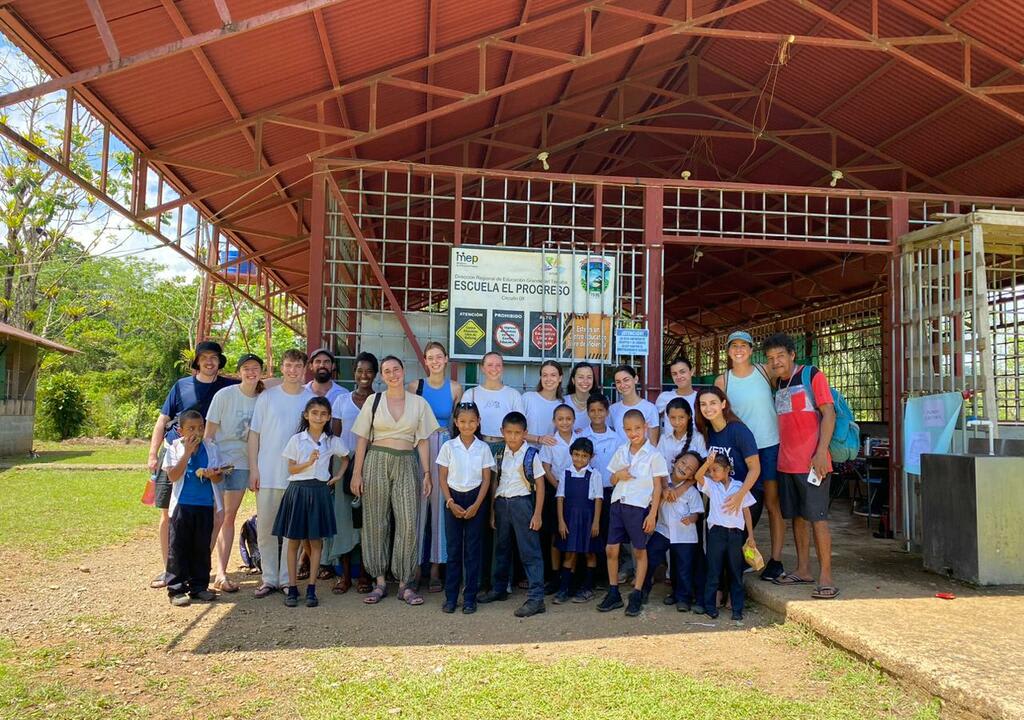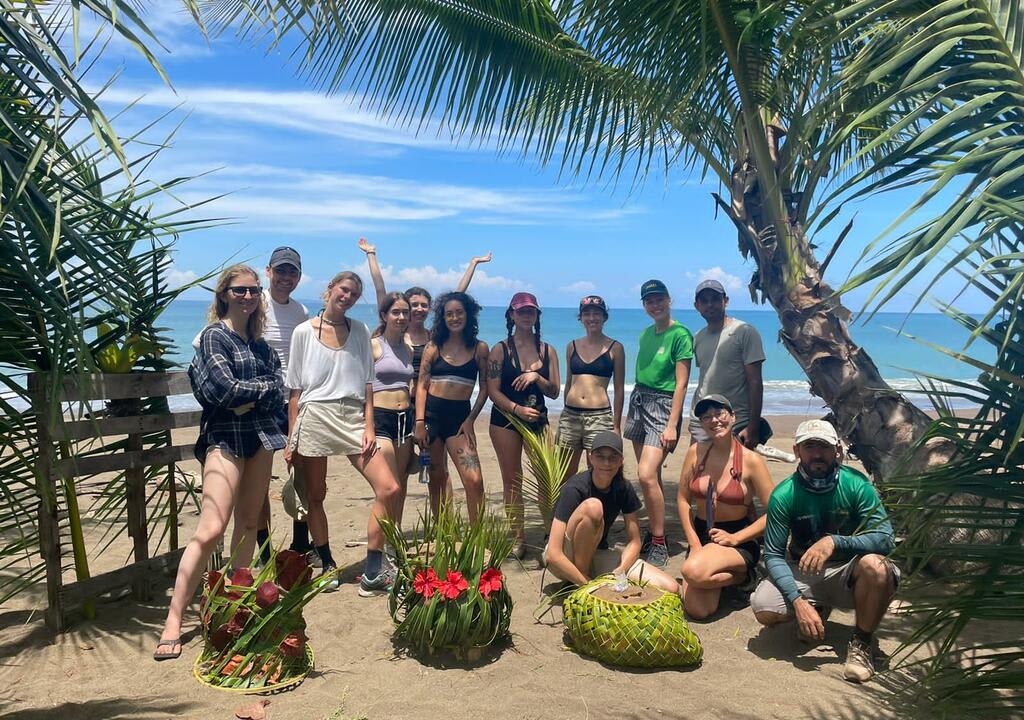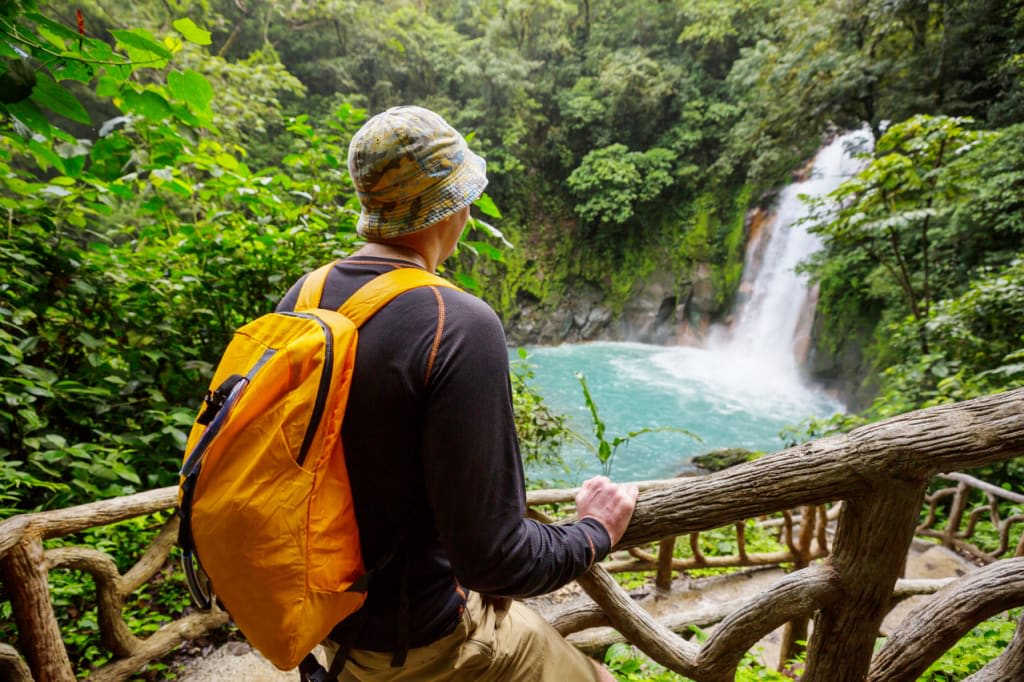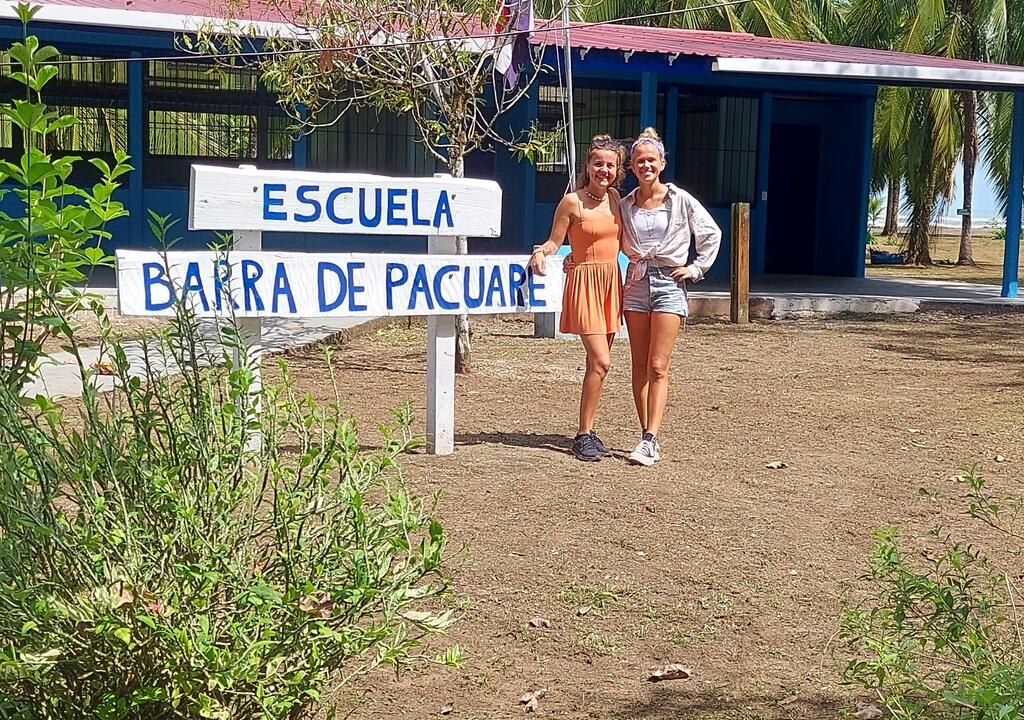
- How about winning a flight ticket worth up to US$500?
- Become a member by January 31st and get a chance to win!
Explore the adventure of teaching English in Costa Rica, with tips on finding opportunities and enjoying this beautiful country.
7min

Teaching English in Costa Rica is an exciting and rewarding opportunity for those looking to immerse themselves in a new culture while making a difference. This beautiful Central American country offers not only stunning landscapes, but also rich cultural experiences and warm-hearted people eager to learn from you.
This blog post will guide you through the process of how to teach in Costa Rica (no certification needed!), as well as offer tips on how to make your experience enjoyable while living in this beautiful country.
Costa Rica is a captivating destination that attracts travelers from around the world. The country's stunning scenery, vibrant culture and hospitable locals make it an excellent choice for teaching English. Here are some reasons why you should consider teaching English in Costa Rica:
The natural wonders of Costa Rica, including its lush rainforests, pristine beaches, and abundant wildlife, offer endless opportunities for exploration and adventure. Teaching here allows you to immerse yourself in this stunning environment.
With globalization and the growth of tourism in Costa Rica, many locals feel the need to learn English. This creates numerous opportunities for native or fluent speakers to help bridge the language gap and give people abilities that will benefit them on a personal and professional level.
Teaching abroad provides unique opportunities for personal growth as well as fostering meaningful relationships with people from different cultural backgrounds. As an educator in Costa Rica, you'll have the chance to develop strong bonds with your students while learning about their customs and traditions firsthand - creating lasting memories along the way.

Teaching English in Costa Rica is an incredible opportunity, and the work exchange platform Worldpackers makes it easy for you to find the perfect teaching position. The hosts don't require any certification for you to start teaching as a volunteer, which makes this a great choice for those who are starting out as English teachers or want to try it out before professionalizing.
In most cases, you'll work about 20 hours a week in exchange for accommodation and other benefits like meals and tours. The platform offers a variety of features that help you connect with hosts, read reviews from other volunteers, and discover opportunities tailored to your skills and interests.
To begin your search for teaching positions in Costa Rica, simply create a profile on Worldpackers. Once your profile is complete, browse through available teaching opportunities.
Read host profiles carefully and pay attention to their expectations for volunteers. Don't hesitate to use the messaging system provided by Worldpackers if you have any questions about a particular opportunity.
More on teaching English abroad on this article about teaching English in Thailand.

Here’s a few examples of the positions available for teaching English in Costa Rica through Worldpackers:

To explore other teaching opportunities in Costa Rica available on Worldpackers right now, click here. Remember that new positions are added regularly so it's worth checking back if nothing catches your eye immediately.
In addition to teaching positions, Worldpackers offers various other types of work exchange opportunities in Costa Rica such as hostel work or volunteering on farms and ecovillages.
No matter what type of experience you're looking for, the platform can help connect you with hosts who are excited to welcome enthusiastic travelers like yourself.
Approach your volunteer experience with an open mind and a willingness to learn from your host community. This is a chance to expand your horizons and provide invaluable aid to those you encounter, enabling both yourself and them to benefit from the experience.

It's important to remember that teaching English abroad is about more than just sharing your language skills. Embrace the chance to expand your horizons by being open-minded, inquisitive, and willing to take in knowledge from those around you. And even though you don't need to have much experience or a certificate, do your best to be a good teacher.
To make the most of your time there, consider these tips:
Before confirming your trip, review host profiles, read reviews from other volunteers, assess program details, and use the messaging system of Worldpackers to communicate with hosts and clarify expectations.
Gain a deeper understanding of Costa Rican customs by researching their history, traditions, food habits, and education system. If possible, it’s great if you can learn some Spanish before the trip. This will help you better connect with students and community members while also demonstrating respect for their way of life.
Engage in meaningful conversations with locals during your free time or participate in community events. Interacting with people from different cultures can help to broaden your own perspectives and foster harmony between you and the locals.
Design lessons that cater to different learning styles by incorporating interactive activities such as games or role-plays.
Be open to adapting lesson content based on student feedback or needs. Additionaly, remember that teaching styles may vary between countries, so be prepared to adjust yours accordingly based on feedback from students or colleagues at your placement site.
Your passion for teaching will inspire those around you. Embrace this unique experience wholeheartedly while making lasting connections with both locals and fellow volunteers.
Foster a supportive learning environment by building rapport with students through genuine interest in their lives outside school hours. Encourage collaboration among classmates so they feel comfortable asking questions or sharing ideas during class discussions.

Make the most of your days off by visiting some of Costa Rica's incredible attractions like Tortuguero National Park, Rincon de la Vieja National Park, or the famous Monteverde Cloud Forest Reserve. Check out some tips for exploring this amazing country:
Costa Rica can be more expensive than other Central American countries, so it's important to plan accordingly. Be aware of your daily spending and search for ways to cut costs, like cooking meals at home or taking public transport.
The cost of living in Costa Rica varies depending on your location and lifestyle choices. On average, expect to spend around $500-$1,000 per month for basic expenses like food and accommodation. Keep in mind that volunteering through Worldpackers often includes lodging and meals as part of the exchange agreement with hosts, and that greatly reduces your living costs.
To save money on food on your free time, enjoy delicious and affordable meals by eating at "sodas" (local eateries) instead of touristy restaurants. During the volunteer period you can cook with fresh ingredients from local markets. Most Worldpackers hosts will give you access to a fully equipped kitchen where you can cook, and some will offer one or more meals in exchange for your work.
Traveling with fellow volunteers can also help cut costs while creating lasting memories together.

Consider these transportation options for traveling around Costa Rica:
Your safety should always be a top priority when traveling abroad, but Costa Rica is a safe country.
Here are some general safety tips for your trip there or anywhere else: stay aware of your surroundings and keep an eye on your belongings, especially in crowded areas, avoid walking alone at night or venturing into unfamiliar neighborhoods without a local guide and make sure to have duplicates of critical records, such as passports and visas, in the event that they are misplaced or taken.
You might also like to read:

Definitely. Costa Rica is an amazing destination for teaching English, with friendly locals, breathtaking natural beauty, and a high demand for English teachers.
Absolutely. Non-native speakers can teach English in Costa Rica in private institutions as long as they have strong language skills and relevant certifications like TEFL or TESOL. For Worldpackers volunteer programs, no certification is required.
Start browsing through the Worldpackers work exchange and volunteer abroad programs and make the most of your time teaching English in Costa Rica and traveling throughout this amazing country. You might also want to check out our articles about traveling in Central America. Enjoy!
Write here your questions and greetings to the author
Mukhtarkhan
Jun 28, 2023
I am ready for teaching English for Costa Rican people and I have ielts certificate
Niyamath
Jul 31, 2023
I would like to apply for this role, could somebody assist how do I proceed.
Mah
Aug 03, 2023
Hi
ahlam
Aug 05, 2023
I'm interesting
Riyaz
Aug 06, 2023
I’m interested
bevix
Aug 09, 2023
I'm really happy I was can to improve insights from this great
https://takesurvey.onl/www-kfcfeedback-com-au/
Aliya
Aug 24, 2023
If I get opportunity to teach a coast rican people i will give my best of my knowledge
Olivia
Aug 24, 2023
Teaching and essay writing are intertwined in education. Teachers often assign essays to students as a way to enhance their critical thinking, research, and communication skills. Essays allow https://www.nursingpaper.com/examples/heritage-assessment-essay/ students to delve into a topic, explore different perspectives, and articulate their thoughts coherently. Teachers guide students through the essay-writing process, offering feedback and helping them develop strong writing techniques. This collaboration fosters a deeper understanding of subjects and nurtures students' academic growth.
Abdellah
Sep 08, 2023
I want to participate, but I do not have the money to prove membership. I want help
Zohir
Oct 20, 2023
I'm interested
FRANK
Oct 26, 2023
Interested
Allison
Nov 24, 2023
I am so interested in this!!! Cannot do it immediately, but will investigate later !!
Omar
Dec 26, 2023
I’m ready
Erika
Jan 03, 2024
Interested